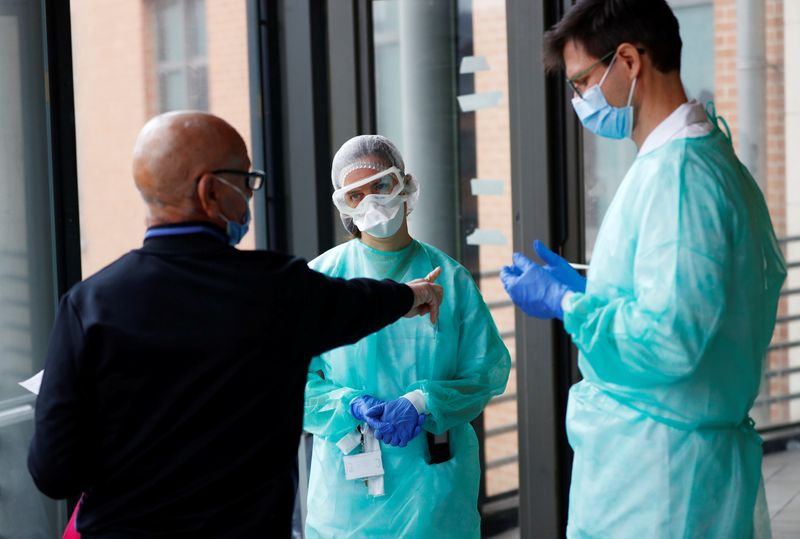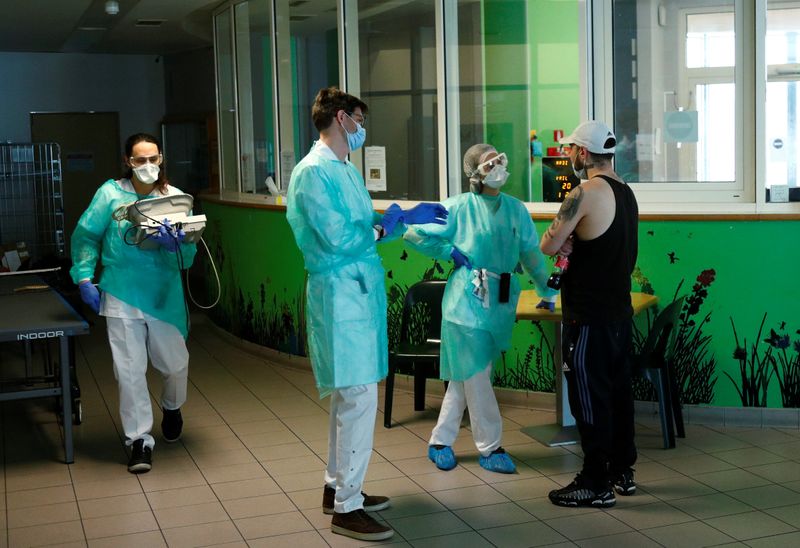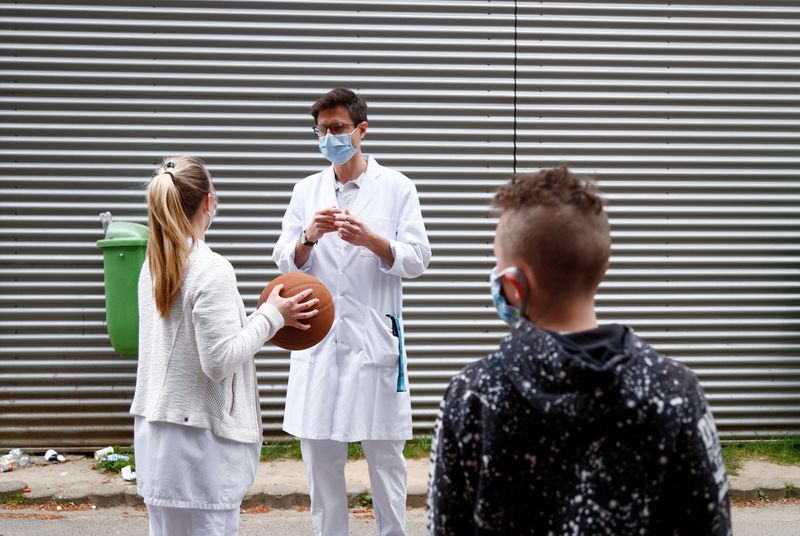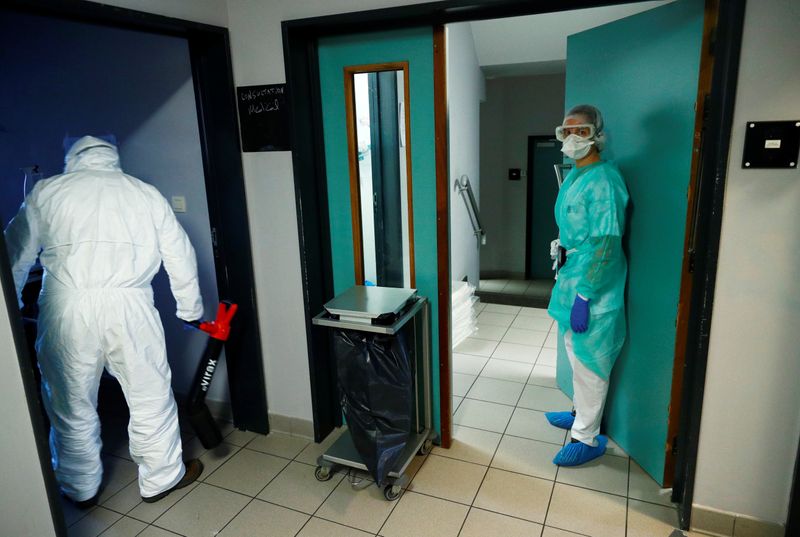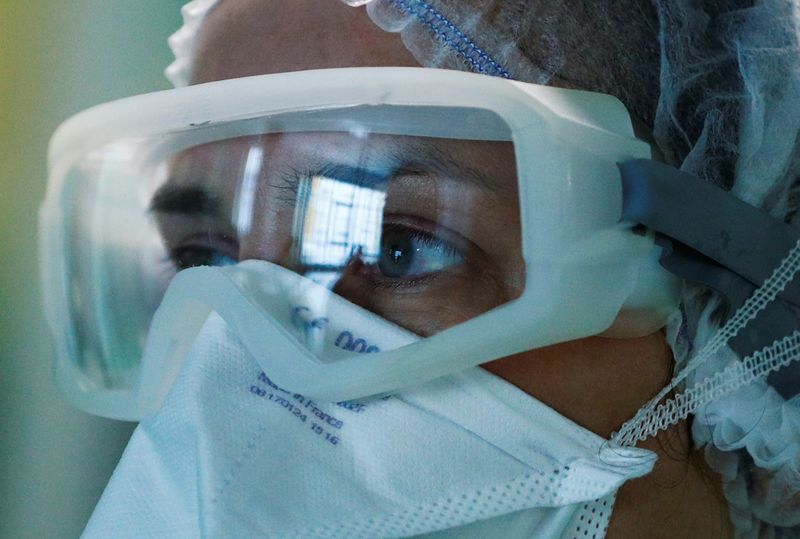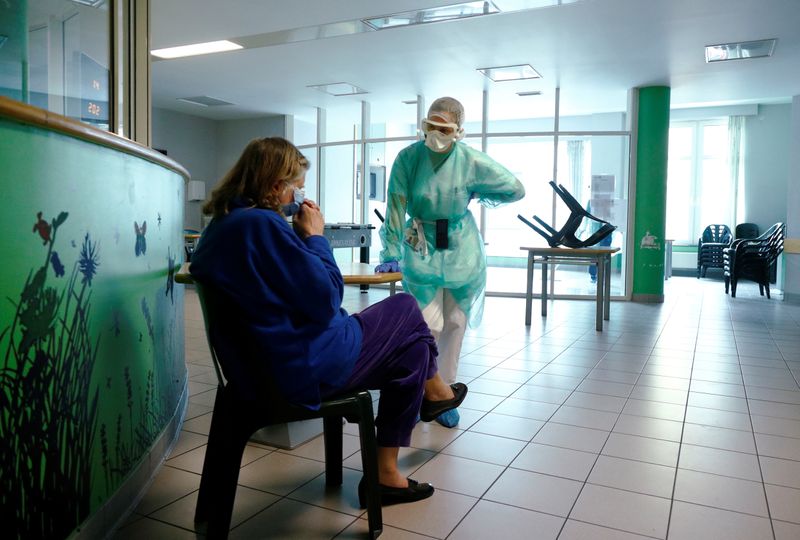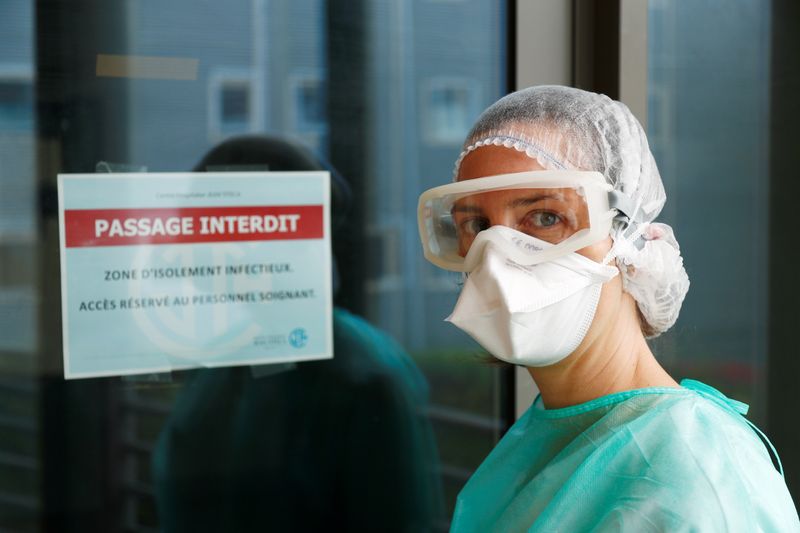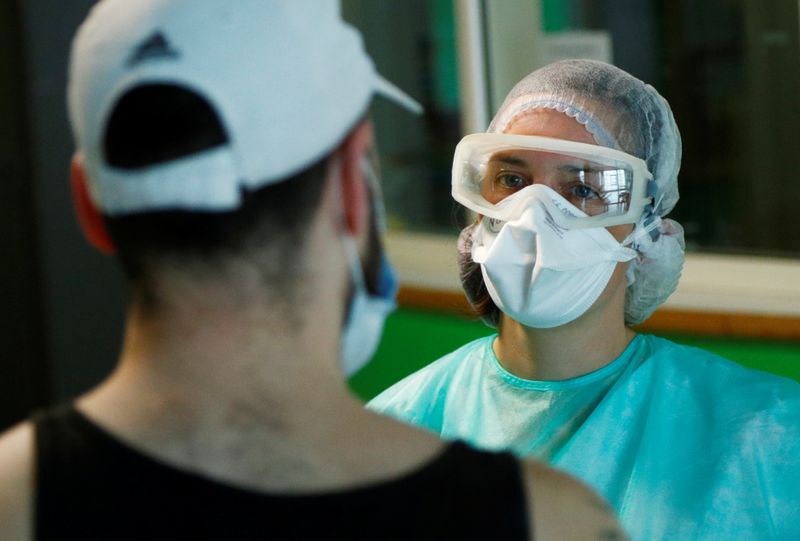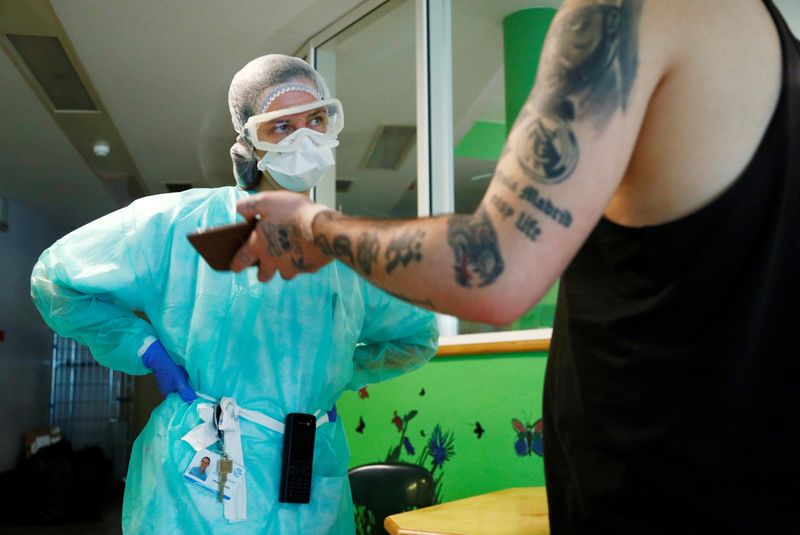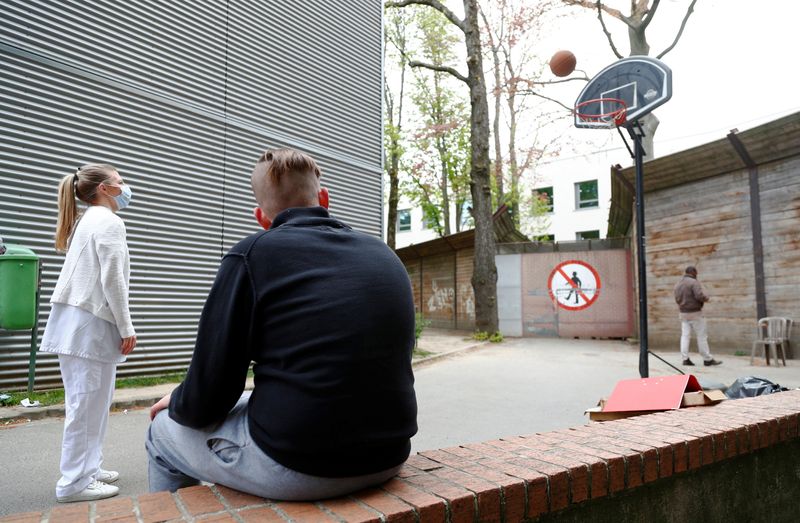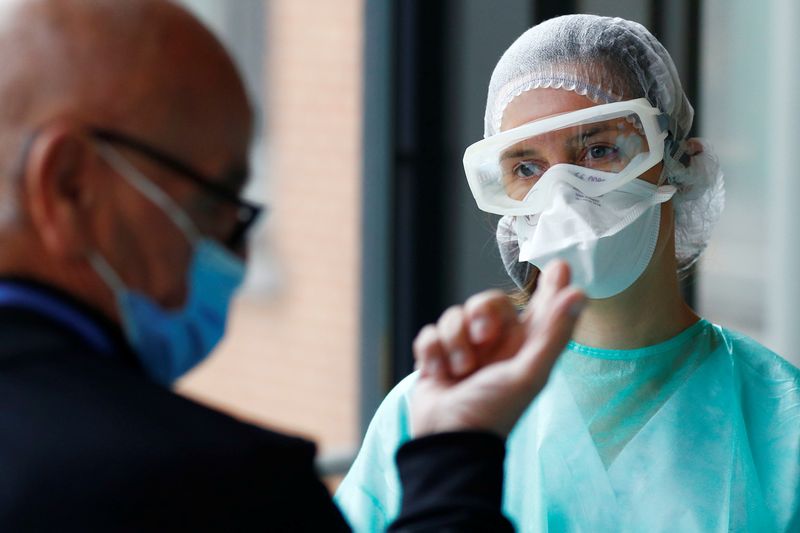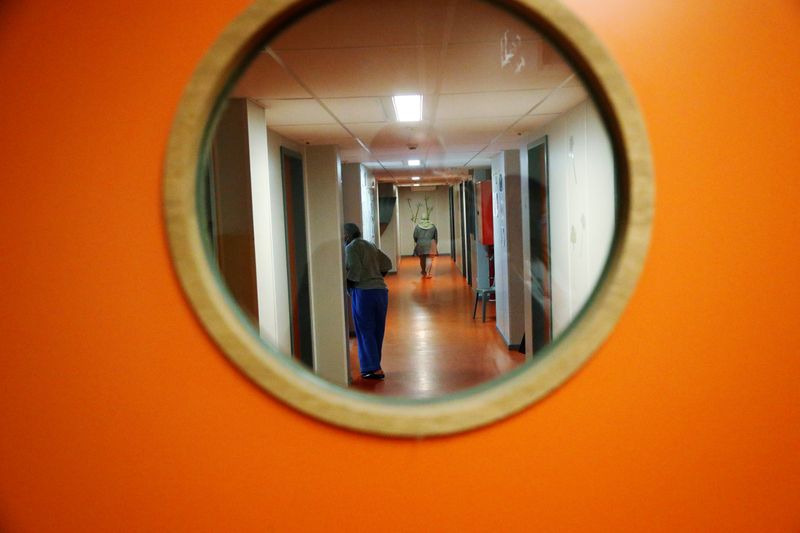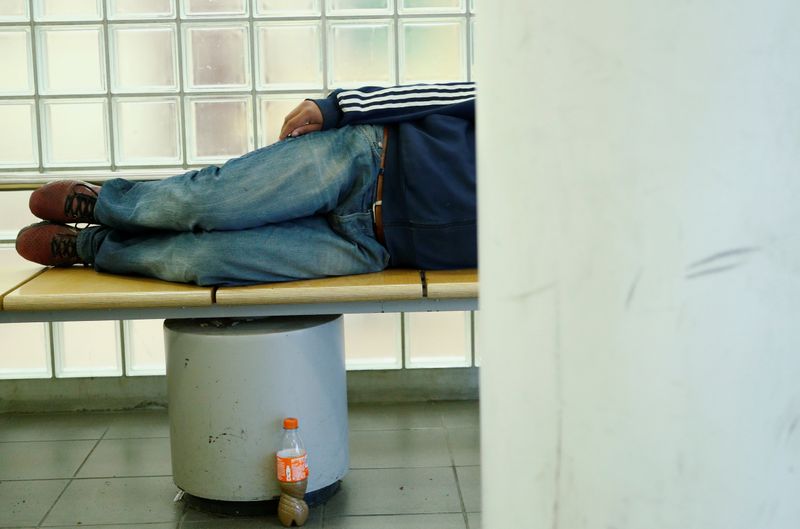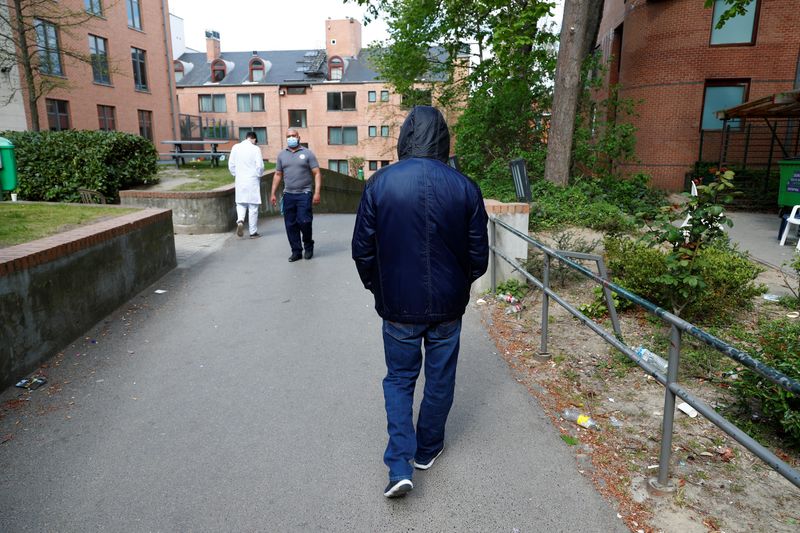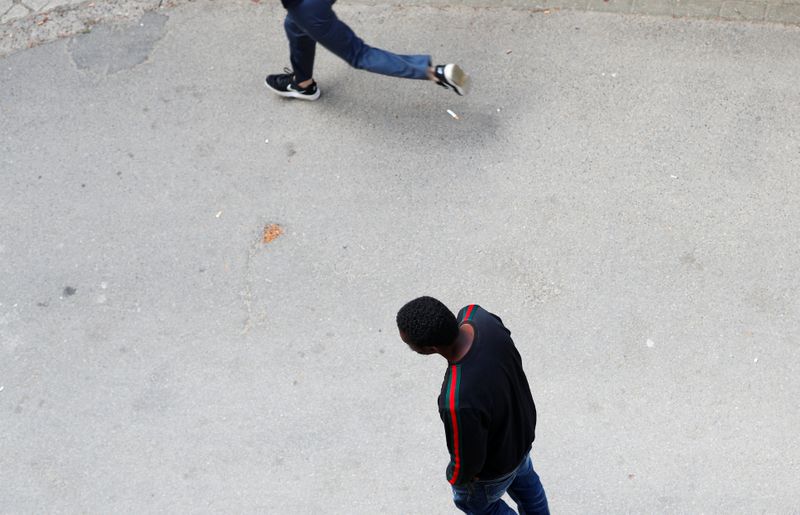BRUSSELS (Reuters) – From serving more fries to patients to engaging them in sewing face masks, Belgian psychiatric hospitals have carefully adapted their routine to comply with coronavirus restrictions.
For the 200 patients in the care of Belgian psychiatrist Pierre Oswald, Belgium’s lockdown means no trips to chocolate shops outside his Jean Titeca psychiatric hospital in Brussels.
There is no more buying of take-away food, and there are no visits and no weekends out.
Oswald said he has tried to focus his patients’ attention more on their daily hygiene.
“There is tension and anxiety present but no catastrophe,” Oswald told Reuters in a telephone interview.
“There are lots of deliriums that develop around this virus,” he said. “It’s a source of extra delirium but not a source of additional discomfort, it’s something they live with.”
None of the patients or staff at the hospital have been tested for the coronavirus. Avoiding an outbreak in the hospital is vital.
“If contagion increased, psychiatric hospitals would have difficulties facing the situation,” Valerie Victoor from the federation of hospitals and care homes for the Brussels and Wallonia regions said in a telephone interview.
Belgium has reported 44,293 coronavirus cases and a death toll of 6,679. But the authorities believe the peak of the epidemic has passed in the country of 11.5 million and the government was on Friday considering a gradual easing of lockdown measures from May 4.
Oswald said the tougher part of the coronavirus crisis may still be ahead for his patients – when restrictions are eased.
Some people, he said, have enjoyed living at a slower pace since the lockdown measures began on March 18.
“One can imagine people who suffer from ‘deconfinement’, this little bubble of serenity, of refocusing, of reduction of stimulation, of the obligation of performance,” he said.
He has already noticed what he called a “lockdown nostalgia” among patients who found renewed purpose in their daily activities under lockdown.
Steven van Gucht, a virologist who is one of Belgium’s coronavirus spokesman, said there could also be a psychological toll on the broader population after the coronavirus and the lockdown.
“The psychological impact of this lockdown period will be quite strong,” he told Reuters in an interview.
(Reporting by Marine Strauss @StraussMarine, Editing by Timothy Heritage)

